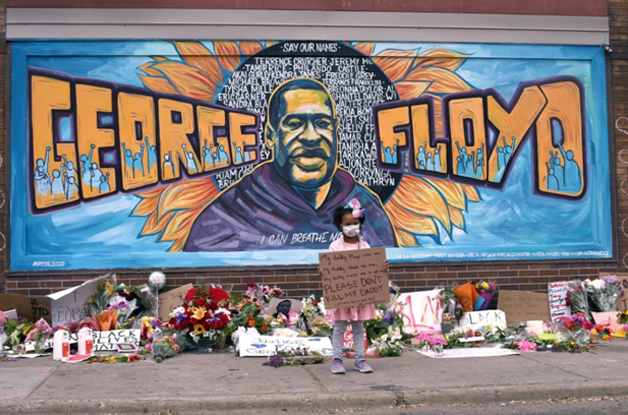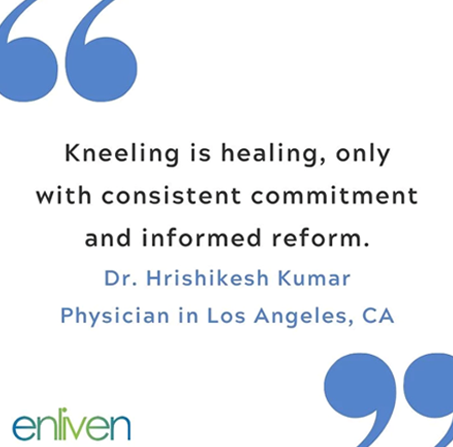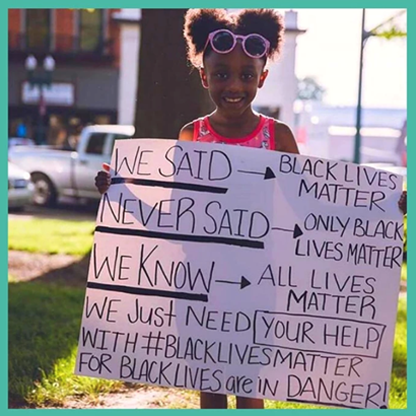
Photo Credit: Xena Goldman
I knew that our latest blog post would need to be about what’s happening in the world now, post the death of #GeorgeFloyd but I needed to take a few days to get a grasp on the deep rooted issue which is that these recent murders are a reminder that it has never been safe to be black in America. There is so much information out there, I had to sift through it and speak to some dear friends that live in the US to truly understand what’s going on, and what needs to be done.
There are a variety of messages out there, but based on my conversations, the main one is that it’s not a time just for solidarity, we have to go beyond that at this point. Taking a knee is not enough. Putting up a black square on instagram is not enough. We need to self reflect and then figure out what action we can take in our own personal lives to change the way things are in the world.

Now, there are different levels of what needs to be done, but what we as a global society need to understand, is that all of us need to be a part of this movement, it’s on us as humanity to change the situation and improve it. A friend of mine, Hrishikesh Kumar (a physician in Los Angeles), said “Kneeling is healing only with consistent commitment and informed reform.” It may be a loaded sentence, but in actuality it’s completely true because if you don’t participate you’re complicit.
So, what do action do we need to take?
- Become more informedabout the structure of local government. Understand what the roles of the elected officials are, andvote for people that will take measurable actions to improve the situationbecause “eventually, aspirations have to be translated into specific laws and institutional practices — and in a democracy, that only happens when we elect government officials who are responsive to our demands.” (President Barack Obama)
- Endorse organizations on the front lines of social justice that align with your way of thinking.For example, you can sign this petition calling for the end of police violence against Black people.
- Find the mental health and trauma support you need.In the words of Daniel H. Gillison, Jr., CEO of the Nation’s Alliance on Mental Illness (NAMI), “While there is much we need to do to address racism in our country, we must not forget the importance of mental health as we do so. The effect of racism and racial trauma on mental health is real and cannot be ignored. Racism is a public health crisis” and we need to provide as much support to the community as we can. This link provides a variety of mental health resources from NAMI.

It may seem that until now this post has been focused on what the US is dealing with, but racism really is a worldwide pandemic, because we live in a world that is controlled by skin color. To name a few places, it’s evident in the US, in Africa, in Thailand, and in India.
A friend (thank you, Reshem!), shared Abhay Deol’s instagram post with me and it resonates with me. I’ve pasted it below for your reference, and you can also click here to see it. “Now that ‘woke’ Indian celebrities and the middle class stand in solidarity with fighting systemic racism in America, perhaps they’d see how it manifests in their own backyard? America has exported violence to the world, they have made it a more dangerous place, it was but inevitable that it would come back karmically. I’m not saying they deserve it, I’m saying look at the picture in it’s totality. I’m saying support them by calling out the systemic problems in your own country, because they turn out to be one and the same thing. I’m saying follow their lead but not their actions. Create your own actions, your own movement, relevant to your own country.”
Oh and also, everyone should watch this video of Hassan Minhaj.
Now let’s get to work, locally and globally.
Written by Devi Bajaj
Founder & Director, Enliven Health Concierge

